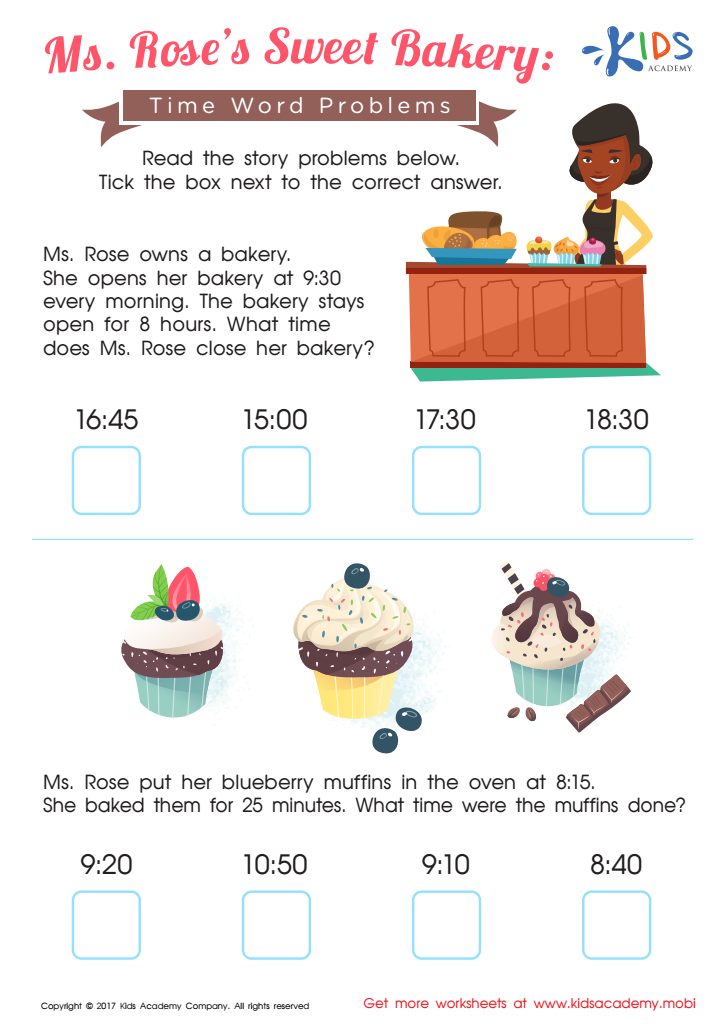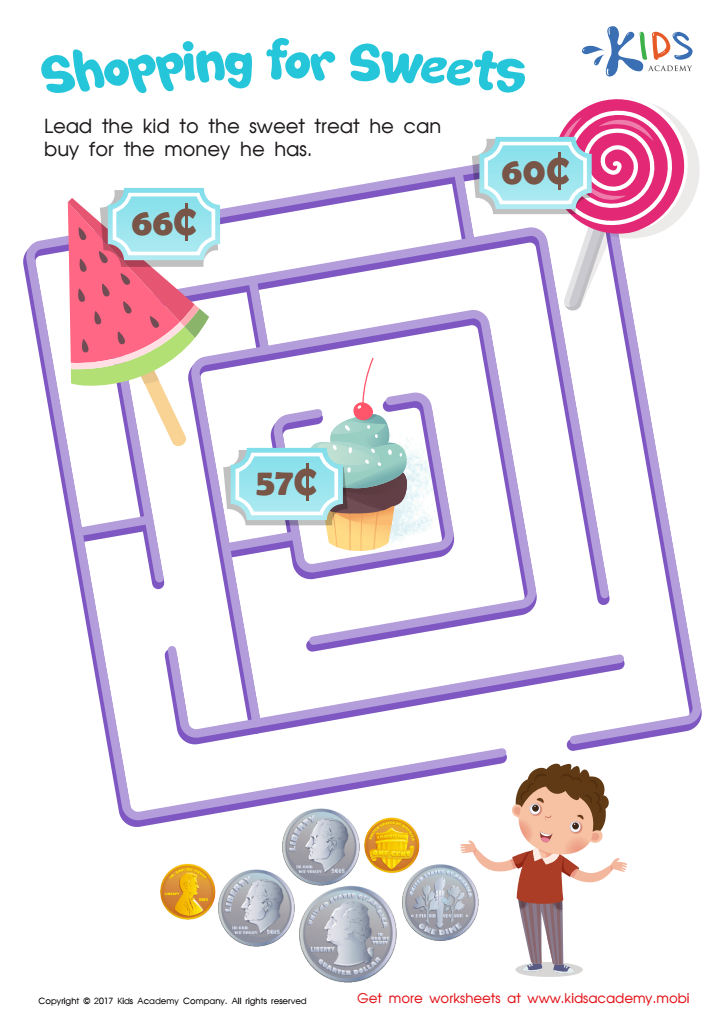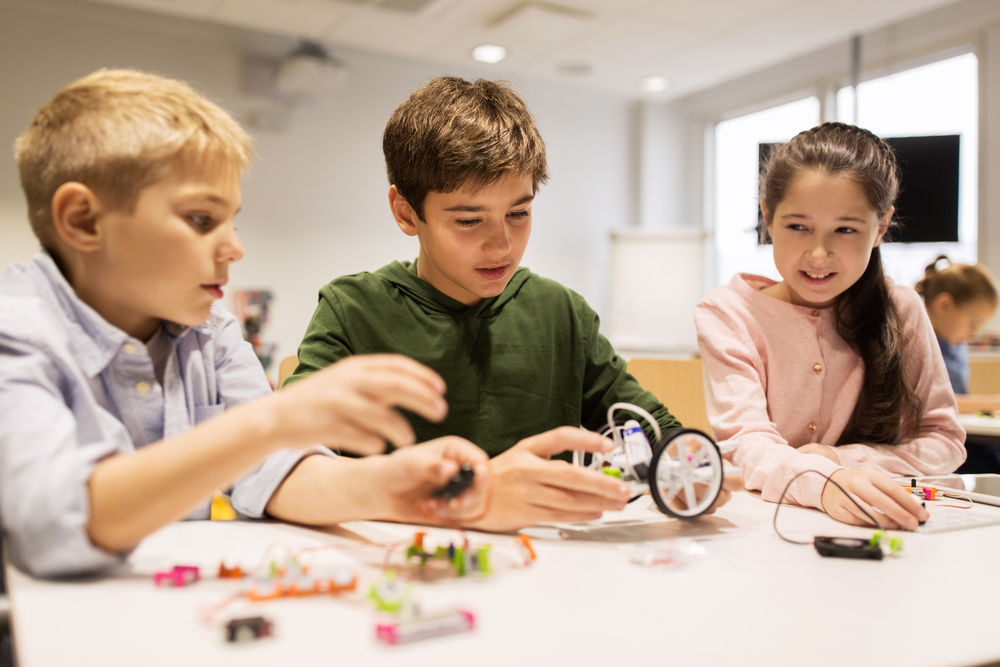Real-life math application Worksheets for Ages 4-7
3 filtered results
-
From - To
Discover the engaging world of real-life math application worksheets designed for children aged 4-7! These interactive resources help young learners connect math concepts to everyday situations, enhancing their problem-solving skills in fun and practical ways. With a variety of creative activities, your child will explore patterns, measurements, counting, and basic arithmetic through age-appropriate scenarios such as shopping, cooking, and everyday tasks. Our worksheets promote critical thinking while fostering a love for math in a stress-free environment. Perfect for homeschooling or supplementary learning, these real-life math applications will prepare your child for a bright academic future. Explore our collection today!


Ms. Roseв's Sweet Bakery Time Worksheet


Grocery Store Worksheet


Shopping for Sweets Worksheet
Parents and teachers should care about real-life math applications for children aged 4-7 because this age group is crucial for laying a strong foundation in mathematical understanding. Young children learn best through hands-on experiences and practical activities that relate to their daily lives. By incorporating real-world math into lessons, such as measuring ingredients while cooking or counting toys during play, children can see the relevance of math beyond the classroom.
Engaging with real-life scenarios helps to deepen their understanding of mathematical concepts, making learning more enjoyable and meaningful. For instance, understanding basic addition and subtraction becomes clearer when it involves counting snacks or sharing toys with friends. This contextual approach not only enhances comprehension but also fosters problem-solving and critical-thinking skills.
Additionally, when parents and teachers demonstrate the use of math in everyday situations, they model positive attitudes towards the subject, encouraging children to embrace math without fear. This can build confidence and instill a lifelong love of learning. Lastly, real-life math applications promote engagement and collaboration, allowing children to connect with family members and peers, making math both a social activity and an academic one. Ultimately, real-life math makes learning engaging and relevant, setting the stage for future academic success.
 Assign to My Students
Assign to My Students
















